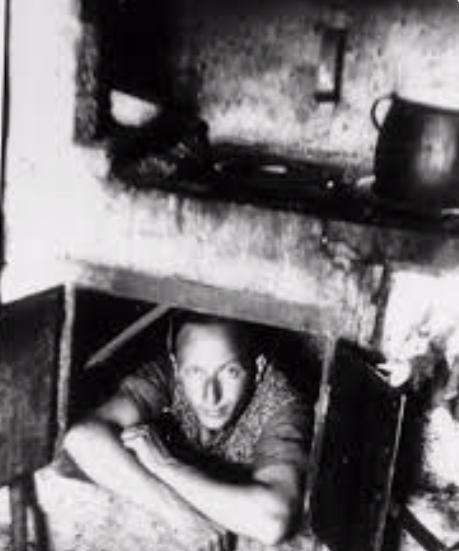Archetypal Literary Theory
- reb2003thompson
- Jul 21, 2020
- 4 min read
Updated: Jul 24, 2020

Picture source: (Boissoneault)
Welcome back! My blog on “The Book Thief” continues….
I haven’t finished reading the book yet, I am currently about two-thirds of the way through. It is only getting more interesting, as Liesel and her adopted family - the Hubermanns -
are currently hiding a Jew, Max, in their basement! Back then it was a very courageous act punishable by death! As for Liesel she’s stolen another book called, “The Shoulder Shrug”, which she dragged out of the fire at a Nazi book burning. (Zusak 120)
Image source: (Yelim)

I continue to thoroughly enjoy reading the book and was very surprised when the Hubermanns were willing to risk their lives for Max. One of the things that I noticed while reading was that there are several archetypal characters in the book. Liesel is a Child archetype as well as the Heroine. She embodies the Child archetype in one way as she is actually a young girl – only 11 years old in the story (Zusak 117). Liesel is also a heroine because we see her developing in wisdom, courage and strength as the story develops. The world of Nazi Germany forces Liesel to grow and change, and to challenge her to act with moral courage and determination in spite of the fearful circumstances in which she is living. For example, she has to grow and change because she needs to accept the circumstances of not living with her biological family, her brother dying, as well as dealing with the war going on around her. (Zusak 31) Can you imagine how hard that would be on such a young girl? As Death notes, she also needs courage and determination to steal her books! (Zusak 117). Most importantly Liesel demonstrates courage in befriending Max, and staying silent about the fact he is hiding in their basement. (Zusak 203) It makes me wonder - how would I deal with the circumstances that Liesel had to deal with?
The Mentor is another archetype I have noticed so far in the book. The Mentor archetype imparts wisdom and support to the hero/heroine of the story, and this is exactly the role that Hans Hubermann, Liesel’s foster father, plays for her. He teaches her to read and is a role model of courage and morality. For example, he painted over the Jewish hate graffiti that was on a Jewish person's shop, “…the words JEWISH FILTH were spilling over at the edges…” “I will come tomorrow,” Hans said, “and repaint your door. (Zusak 181)”. Even though it was looked down upon for him to do so, Hans did it anyway. The narrator also includes that when Liesel writes her own book, she writes “…it was not so much the school who helped me to read. It was Papa.” (Zusak 64) He is a guiding light for Liesel as she continues to grow and develop.
When I think about the Mentor archetype, Gandalf from, “The Lord of the Rings", comes to mind. There are many similarities between Gandalf and Hans. Both provide support, wisdom and guidance to the hero/heroine in their times of need. They also help the hero/heroine continue on their journey through life and survive in the dark world that surrounds them by teaching them courage and determination and being a role model for them.
Image source: (Scott)

One of the clearest symbols that stands out to me in “The Book Thief” is the symbolism of the books that Liesel steals. Liesel’s first stolen book, “The Grave Digger’s Handbook”, is the first book that, with the help of Hans, she learns to read.
To me, the stolen books and the act of stealing them represent freedom, self-expression and control to Liesel. While she lives in a world where actions are severely scrutinized and there is really no freedom, Liesel is able to exert some control over her world by stealing the books. They also give her an escape into a different world outside of the terrible one she is living in. Even the narrator – Death – feels sorry for Liesel, as he states, “I wanted to stop. To crouch down. I wanted to say: “I’m sorry, child.” (Zusak 113). Finally, I think that Liesel stealing the books is her way of being defiant and expressing how much she dislikes what the Nazi's are doing and the suffering they are causing. She makes this very clear when she states "I hate the Führer." (Zusak 115) In this way, the books represent much more than just a simple book, but rather stand as a symbol of freedom, control, personal expression and defiance.
I’m interested to see what lies ahead for Liesel, Max, and the Hubermanns. Check out my Blog next week to see how their journey ends!
Works Cited
Boissoneault, Lorraine. “A Brief History of Book Burning, From the Printing Press to Internet
Archives.” Smithsonian.com, Smithsonian Institution, 31 Aug. 2017,
Steve, Scott. “56 Best Book Photography Images: Photography, Book Photography, Books.”
Pinterest, 13 Aug. 2015, www.pinterest.ca/buckbookspins/book-photography/.
Yelin, Chaim. “Holocaust Education & Archive Research Team.” The Gelpernus Diary -
Resistance in the Kovno Ghetto -Revolt & Resistance Www.
Holocaust ResearchProject.org, 2008,
Zusak, Markus. The Book Thief. New York :Alfred A. Knopf, 2007.





Comentários